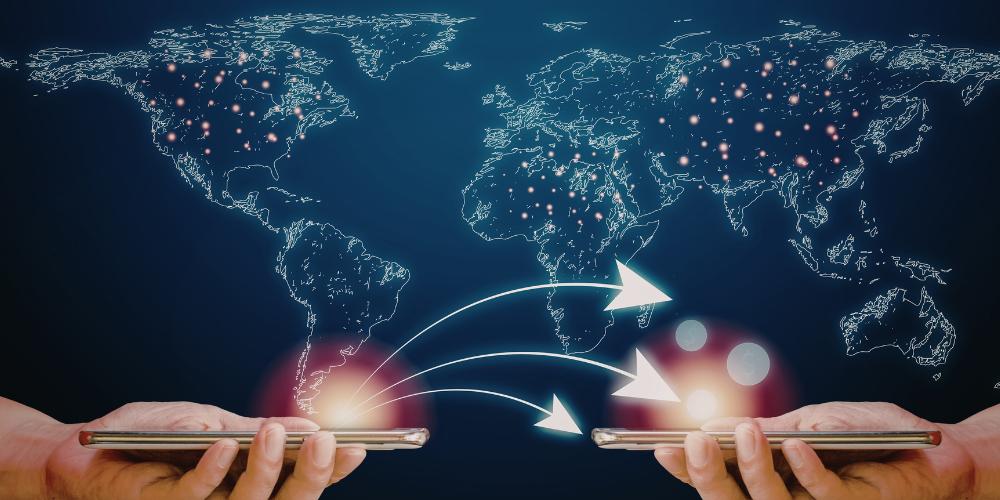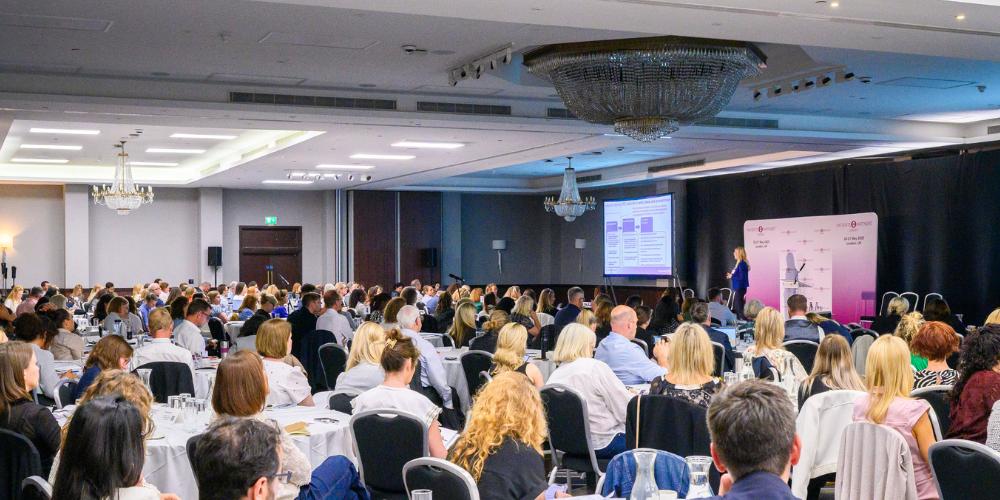Advice from a Customer Service Expert On Treating Patients like Partners
Best practices from customer service can play a big role in optimizing the patient experience in clinical trials. Chip Bell, PhD, shares his advice as an expert consultant in customer loyalty and service innovation across industries.

How do you think the pandemic changes customer service in clinical trials?
Not in terms of customer experience principles; however, I think there are certain components of those principles now that I will say are sharper, more critical, and more important. Because now, not only do you have a patient who’s coming in anxious about their specific malady, but globally, they are worried about more than that. They’re worried in general.
We start out upset, worried, concerned about COVID-19 and “What’s going to happen to me?” and “What’s going to happen to my family?” We are in a milieu of fear. And so, to me, that even more dramatizes my particular issue that I’m coming to a clinical trial to help benefit. I think it just sharpens those principles in a much greater way.
Clinical trials are adjusting protocols, suspending or halting or halting them temporarily, which can be incredibly disruptive to patients. How would you recommend sponsors communicate those changes to patients? To trial staff?
I think it increases the frequency with which you’d need to communicate. It increases the requirement for empathy and compassion. If there was ever a time in which we would not want “clinical detachment,” in terms of the patient and the relationship, it’d certainly be now.
I compare it in some ways, while it might not be a fair comparison, to an Olympic hopeful.
You’ve been training your whole life for an Olympic event. And now the Olympics not only has been postponed, altering your training to your peak, but also is in jeopardy of whether they’ll still be available. I think understanding, empathy, more communication, higher quality information: all of those now come into play.
"When I talk to physician groups, I say, “What if this patient was a professional member of your clinic? Another physician on your team?” How does that frame change my actions as it relates to that patient?"
Are there other industries that are doing a good job in communicating to their customers that we could take lessons from?
Some that come to mind, that are obviously important in my life, are airlines. I’m not flying, and most of us are not, but I get a note from Delta and American about every week. What they’re focusing on is helping me with ideas about what I can do as it relates to travel.
They are keeping me very detailed up-to-date on changes they’re making to the airlines to make it safe.
So if I did have to travel – I will be this summer – I know that I’ll have a mask that’s provided if I don’t have one, they’ll take my temperature before I get on board, all the flight attendants will have masks, all the seatbelts, windows and screens will have been cleaned before every flight.
They go on about what they’re changing, like the air filtering system so that 99.9% of everything that could be airborne and harmful is filtered out.
That kind of information, at that point which I need to fly, leaves me with much greater confidence. The interesting part, and what makes it more important, is where it’s coming from. Almost all of it is coming from the CEO. So if, at Delta, it’s coming from Ed Bastian, that tells me it must be a pretty big priority for Delta Airlines.
The hospitality industry, Marriott for example, is doing a lot more communication. They’re also putting out more short YouTube videos that give guests a look at what they’re doing. It gives me confidence; it gives me a readiness, at that point at which I’ll be traveling again.
So that constant communication, even though you won’t be doing that activity in the near future, builds trust for when you do eventually fly, for example?
The whole theme is “How do we treat patients like partners?” When I talk to physician groups, I say, “What if this patient was a professional member of your clinic? Another physician on your team?”
Or if you’re a law firm, a partner in your law firm: how are you going to treat this person? What if you treated the patient with that same level of attention, compassion, trust, and focus?
Because we know in the medical field patients are not always viewed from a perspective of equality; they are subjects, so to speak.
The whole orientation of, “Okay, if I put on the lens of ‘This is my partner,’” how does that frame change my actions as it relates to that patient?
"[Customers] are much more powerful today. They’re connected like they’ve never been before. It’s not just word of mouth anymore; it’s word of mouse.”
Why do you think the customer has become much more a part of the conversation over the years?
Several reasons. For a long time, organizations, in general, were focused on “If I make a good product, deliver a good service, all other things are going to take care of themselves.” The focus was inward on what they do, what they produce, what they create, without recognizing the power the customer now has that has gone up exponentially, driven in part by social media.
Also, the recognition that the loyalty of a customer is critical; not only in terms of them coming back – that’s obvious – but in bringing all of their friends. I want customers to be my advocate out there, talking me up and saying great things about the service or product that I produce. I don’t just want customer retention; I want customer advocacy, because I know that impacts my bottom line.
If they bring back four other customers, because they say, “You’ve gotta try this,” it becomes an extension of my salesforce, so to speak. Organizations are recognizing the return on investment for investing in a customer’s experience. The relationship has a big, bottom-line impact.
Customers today can also trash your brand. You could be the subject of a YouTube snarky video and damage your reputation overnight. They are much more powerful today. They’re connected like they’ve never been before, and because of that, they don’t just influence the neighbor over the backyard fence anymore. It’s not just “word of mouth anymore;” it’s “word of mouse.”
How do challenges like the COVID-19 outbreak change the way customers and companies, or patients and sponsors, interact?
All of a sudden, all the news is about this. And not only is that subject dominating the news, and what we hear every day, but the words “clinical trials” are a household phrase. We’re all hearing about how long it’s going to take, when they’ll have a vaccine.
The language of that profession is now a much more familiar one to the general public; we’ve all gotten educated. We all know, “We’re in Phase I,” “Phase II.” People can give you the stages of a clinical trial, and the timeline of a clinical trial, but I bet you six months ago, they wouldn’t have been able to do that.
The education of the public has brought a new awareness of the pharma industry.
"I would keep educating the public on “Here’s the altruistic end that we’re trying to provide."”
How can pharma companies capitalize on that new general knowledge?
It provides a great opportunity for changing the publicity around clinical trials. It may make recruiting a lot easier, because now we hear these heartwarming stories about some medical student who’s decided to be part of a clinical trial, just because he cares about the outcome that might be produced from that.
The heroism that’s coming out of this, and will continue to come out of this, can’t do anything but make you look different in the eyes of the general public. It may make retention easier, because we all know it’s hard to get patients in a clinical trial, and it’s even harder to keep them in a clinical trial until it’s over.
It is a marketing, publicity opportunity that I think a pharmaceutical company would be smart to capitalize on, and keep that drum going, long after this is over with. Obviously, there’s a self-serving dimension to it, but there’s an altruistic side to it as well.
I tell my friends what it costs to bring a drug to market, and how long it takes and they say, “I had no idea. No wonder that drug costs so much.” So, when you look at a drug and think, “Hope you like it, because it cost $2 billion and 16 years to bring to market.” Before this, they have had no clue of the scale of what’s involved in this. And I think now they will.
I would keep educating the public on “Here’s the altruistic end that we’re trying to provide,” because the pharma industry has gotten a lot of negative impact in terms of costs; a certain sector of the political scheme wants to throw the pharma companies under the bus for making such an enormous amount of money, and “How could my pill cost so much?” But the more education, the more that tends to be looked at in a different way.
What would you encourage companies to continue doing after this passes?
I have a friend of mine who follows the workforce trends; he’s predicting after all of this is over, 50% of the workforce will be working from home. Even if the number is off a little bit, that’s pretty dramatic.
I’d be thinking about, if that’s true and we have more of a stay-at-home workforce than ever before, what changes would that make? How does that affect meetings? How does that affect gatherings? How does that affect keeping people informed?
It changes how we look at childcare, how we look at working hours; it changes all of that. Some organizations have always had to deal with that, where they have people working all around the world, different time zones.
I just wrote an article about remote leadership: how do you lead people who are now working at home? It’s not a new thing, because we’ve always had people working on the graveyard shift, so to speak. But I think the amount of it, and the impact it has, will be much greater than it’s ever been.
For more information on Patients as Partners, visit patientsaspartnersconference.com.









